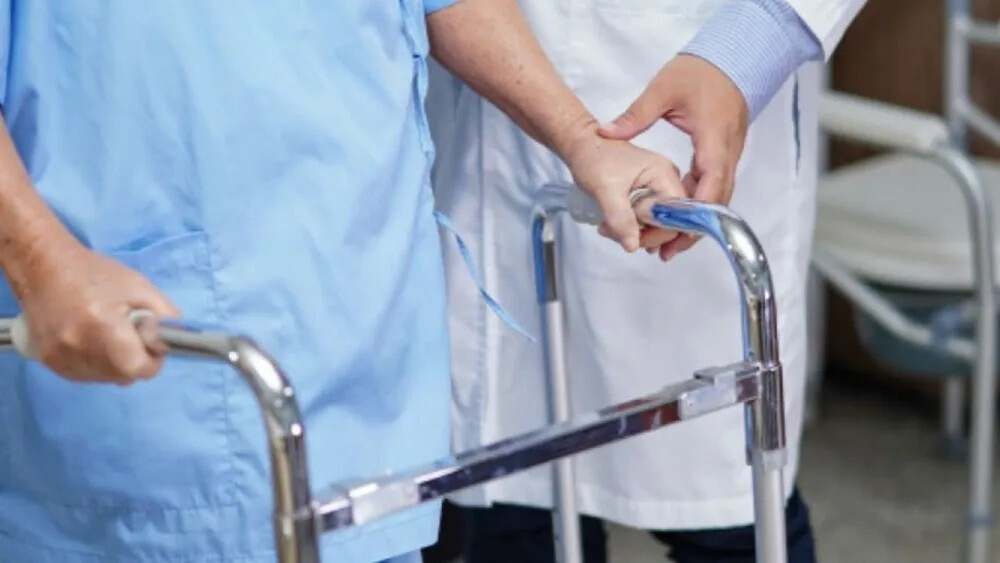
In observance of World Multiple Sclerosis Day (Día Mundial de la Esclerosis Múltiple /EM) on May 30th, efforts have been urged to raise awareness and improve diagnostic accessibility for Multiple Sclerosis (MS). This disease, which attacks the central nervous system, affects approximately 2.9 million people worldwide. In Paraguay, there are 938 patients battling the disease, 76 of whom are children and adolescents under 18.
Multiple sclerosis is a chronic autoimmune disease that damages the central nervous system, including the brain and spinal cord. The immune system mistakenly attacks the myelin sheath, which protects nerve cells, thereby disrupting nerve signal transmission and causing a variety of symptoms. Symptoms vary widely from patient to patient and can include fatigue, vision impairment, muscle weakness, paralysis, problems with walking and balance, sensory disturbances, and cognitive decline. The progression of the disease is also unpredictable; some patients experience mild symptoms, while others suffer severe disabilities.
Current Status of Multiple Sclerosis in Paraguay
According to the World Atlas of MS, 851 MS patients were reported in Paraguay. However, Dr. Fernando Hamuy of the National Multiple Sclerosis Center within the National Institute of Tropical Medicine (IMT) stated, based on the latest data, that the current number of patients has increased to 938. Approximately 48 new cases are diagnosed annually, indicating a steady increase in the prevalence of the disease. Notably, the fact that 76 patients are children and adolescents under 18 shows the vulnerability of young people to this condition.
Challenges and Importance of the Diagnostic Process
Diagnosing multiple sclerosis is often difficult due to its non-specific symptoms, which can resemble those of other diseases. There are many cases where patients with ambiguous initial symptoms wander through various medical departments before receiving a belated diagnosis. Accurate diagnosis requires neurological examination, MRI scans to identify brain and spinal cord lesions, cerebrospinal fluid analysis, and evoked potential tests. These diagnostic procedures demand specialized personnel and equipment, and diagnostic accessibility is even lower in remote areas or regions with inadequate medical infrastructure. Early diagnosis is crucial for slowing disease progression and initiating symptom management, which can significantly improve a patient's quality of life.
Treatment and Management: Efforts to Improve Quality of Life
Currently, there is no cure for multiple sclerosis. However, effective treatments exist to slow disease progression, reduce relapses, and manage symptoms. Disease-modifying therapies (DMTs) help regulate abnormal immune system activity to reduce nerve damage. Steroids are used during acute relapses to reduce inflammation and alleviate symptoms. Additionally, physical therapy, occupational therapy, speech therapy, and cognitive rehabilitation are essential for maintaining a patient's functional abilities and improving their quality of life. Psychological support for mental health issues such as depression and anxiety is also an important aspect that cannot be overlooked. This integrated approach provides practical assistance to patients living with the disease.
The Need for a Comprehensive Healthcare System
The Paraguayan Ministry of Health stated that it is striving to build a more comprehensive healthcare system to ensure that multiple sclerosis patients receive timely diagnoses, access various treatment options, and receive comprehensive support. This goes beyond merely providing medical services; it also includes addressing the social and economic barriers faced by patients and their families.
Multiple sclerosis is a disease that places a significant burden not only on the patients themselves but also on their families. Long-term treatment and rehabilitation can lead to immense medical expenses, and disabilities caused by the disease can hinder social participation, threatening economic independence. Therefore, the government and society must expand policy support to ensure that patients can receive treatment without financial hardship, utilize necessary rehabilitation services, and live with dignity as members of society.
The Importance of Improving Social Awareness and Empathy
In addition to physical difficulties, multiple sclerosis patients often face social prejudice and discrimination. Low awareness of the disease leads to misunderstandings and biases, which cause patients to experience unnecessary difficulties in daily life. The Ministry of Health emphasizes that empathy, social support, and understanding are crucial for removing the visible and invisible barriers that patients face daily.
Ultimately, improving the quality of life for multiple sclerosis patients requires the effort of society as a whole. We must disseminate accurate information about the disease, strengthen support networks for patients, and create an environment where they can participate in society without discrimination. On World Multiple Sclerosis Day, May 30th, we should take this opportunity to raise awareness of this disease, understand the difficulties faced by patients, and work together to help them live better lives. Through these collective efforts, we can create a society where those suffering from multiple sclerosis are not marginalized but can live with dignity.
[Copyright (c) Global Economic Times. All Rights Reserved.]




























